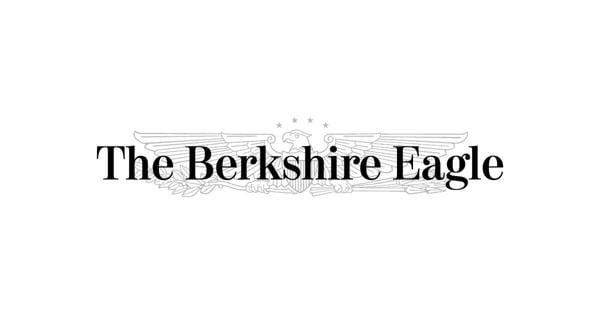In the heart of Uganda, a nation where love can be a death sentence, the recent cuts to USAID funding have plunged the LGBTQ+ community into deeper despair. Andrea Minaj Casablanca, a transgender counselor, has been overwhelmed by desperate calls for help since President Trump’s executive order dismantled the U.S. Agency for International Development. As she navigates her own crisis of losing her job, the community’s fear for the future grows. This article delves into the harrowing reality of Uganda’s LGBTQ+ population, their fight for survival, and the impact of reduced aid on their lives.
The Dire Situation in Uganda
Uganda, a conservative East African nation, has intensified its crackdown on the LGBTQ+ community in recent years. In 2023, President Yoweri Museveni signed a law that imposes life imprisonment for anyone engaging in same-sex relations and up to a decade in prison for attempts. The law also introduces the death penalty for “aggravated homosexuality,” a term encompassing acts with minors or disabled individuals.
The Impact of USAID Cuts
The recent USAID cuts have exacerbated the plight of Uganda’s LGBTQ+ community. Shelters are underfunded, leaving hundreds unemployed and many more vulnerable to discrimination and violence. Essential medical supplies, including HIV medications, are scarce, and mental health services are diminishing.
- Shelters are struggling to remain operational.
- HIV medications and other vital supplies are in short supply.
- Mental health services are being reduced or eliminated.
Voices from the Community
Andrea Minaj Casablanca, a 25-year-old transgender woman, expressed the community’s fear: “Our whole world has been turned upside down. Everyone is in fear of the future.” Her phone, inundated with calls for help, reflects the urgency of the situation. Despite losing her USAID-funded job, she continues to volunteer, driven by the community’s need for support.
Richard Lusimbo, the founder of the Uganda Key Populations Consortium, highlighted the devastating impact of the aid cuts: “With these programs gone, I worry our communities will be pushed back into disarray and disempowerment. It’s heartbreaking.” His organization’s survey showed that 97% of nonprofits dealing with LGBTQ+ issues had lost nearly all their budgets due to the cuts.
Struggles of Activists
Agy Hrd, the executive director of Africa Queer Network, described the situation as “running from one fire to another.” Having campaigned against the anti-homosexuality law, she was attacked and beaten last year. With the funding cuts, she fears for the safety and health of many, especially in rural areas.
Brant Luswata, from Icebreakers Uganda, noted that as services were cut, his organization had to return equipment purchased with American funds. Some clinics have started charging for previously free services like HIV testing, further straining the community’s resources.
The Broader Impact of Aid Cuts
The United States provides over $970 million annually in various forms of assistance to Uganda, with a significant portion allocated to health programs. In 2023, about $440 million was spent on health initiatives alone. The Trump administration’s decision to halt all foreign aid for a 90-day audit and then cut 90% of USAID programs has left a gaping hole in the support system for Uganda’s most vulnerable populations.
The Exemption and Its Limitations
Secretary of State Marco Rubio issued a waiver to continue funding for lifesaving medicines and medical services, including HIV and tuberculosis care. However, this exemption did not cover programs promoting diversity, equity, and inclusion, leaving the LGBTQ+ community without access to crucial HIV prevention medication.
The Struggle for Survival
With the aid cuts, organizations have had to rely on volunteers to maintain essential services. John Grace, the coordinator of the Uganda Minority Shelters Consortium, reported that since 2020, around three dozen shelters have protected thousands of gay Ugandans. However, at least a dozen shelters have closed due to funding cuts, leaving those that remain understaffed and overcrowded.
Grace, who is nonbinary, shared their personal struggle: “These shelters are a lifeline for so many people, and now they’re struggling to survive.” Having been kicked out by their family, Grace understands the importance of these safe havens.
Personal Stories of Resilience
Despite the challenges, individuals like Casablanca continue to fight. She has taken on additional work as a party decorator to make ends meet, all while volunteering to help her community. “We need to survive in this darkness,” she said, reflecting the resilience that defines the Ugandan LGBTQ+ community.
The community’s pleas for help range from medication and testing to basic needs like food and shelter. Many are struggling with fear and isolation, unsure of where their next paycheck will come from or how they will pay rent.
The Global Implications
The situation in Uganda underscores the broader impact of foreign aid policies on global health and human rights. Lusimbo emphasized, “We live in a global village. Everyone’s health is in jeopardy.” The infections that the community faces do not pause for a 90-day review, and the consequences of these cuts could ripple far beyond Uganda’s borders.
Muhoozi Kainerugaba, Museveni’s son and the chief of the Ugandan military, urged Trump to restore aid for those infected with HIV, recognizing the dire need. “Our people will be grateful,” he stated, highlighting the desperation felt by many in the country.
The Way Forward
As the LGBTQ+ community in Uganda faces these challenges, the need for international support and advocacy remains critical. The fight for their rights and survival is a testament to their resilience and determination. Organizations and individuals worldwide must continue to support and amplify their voices, pushing for policies that protect rather than punish.
The story of Uganda’s LGBTQ+ community is one of struggle and hope. As they navigate the darkness brought on by aid cuts and oppressive laws, their resilience shines through. The world must not turn a blind eye to their plight but rather stand in solidarity, advocating for change and supporting their fight for a future where love is not a crime.
Source: www.berkshireeagle.com

